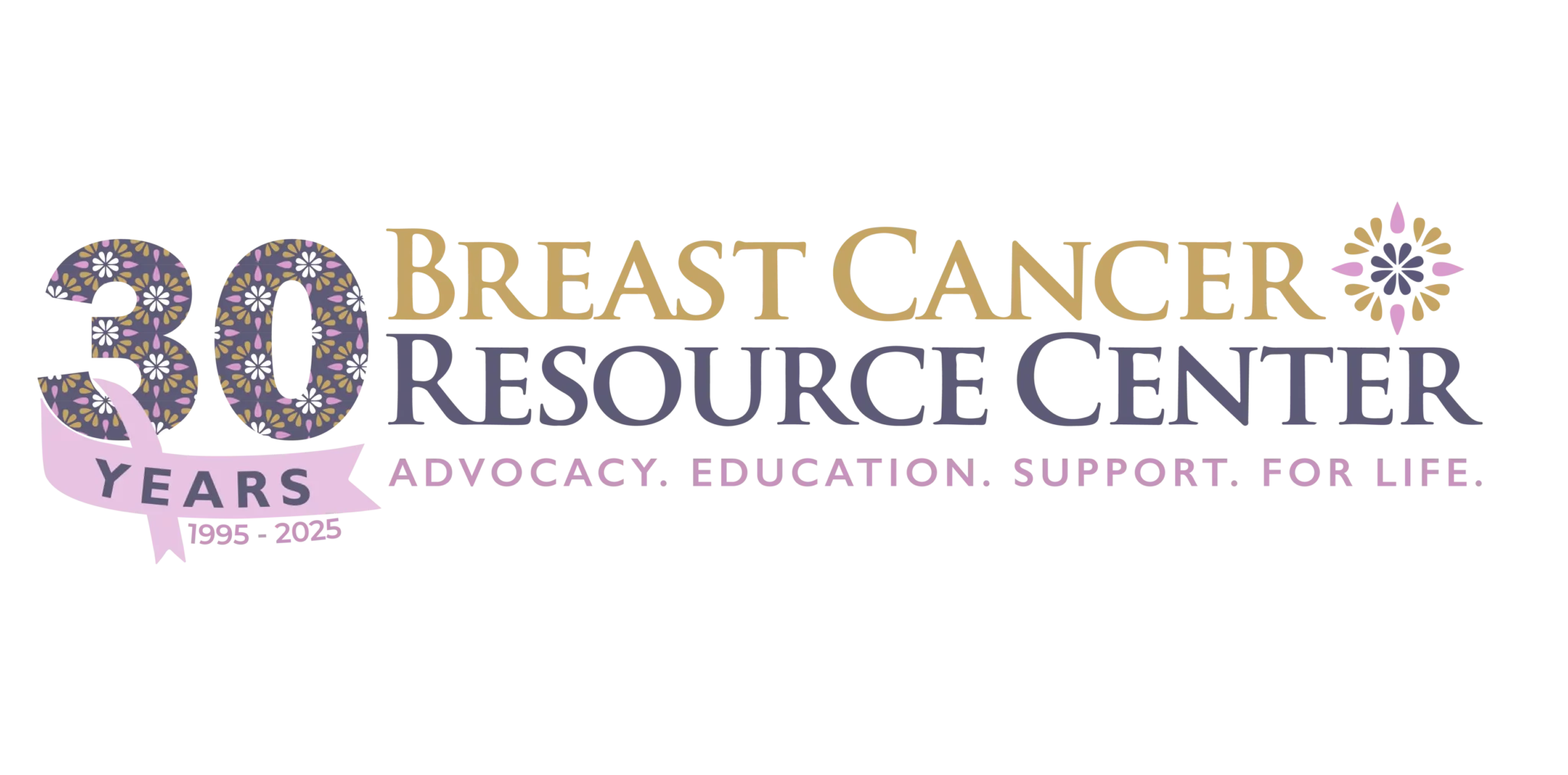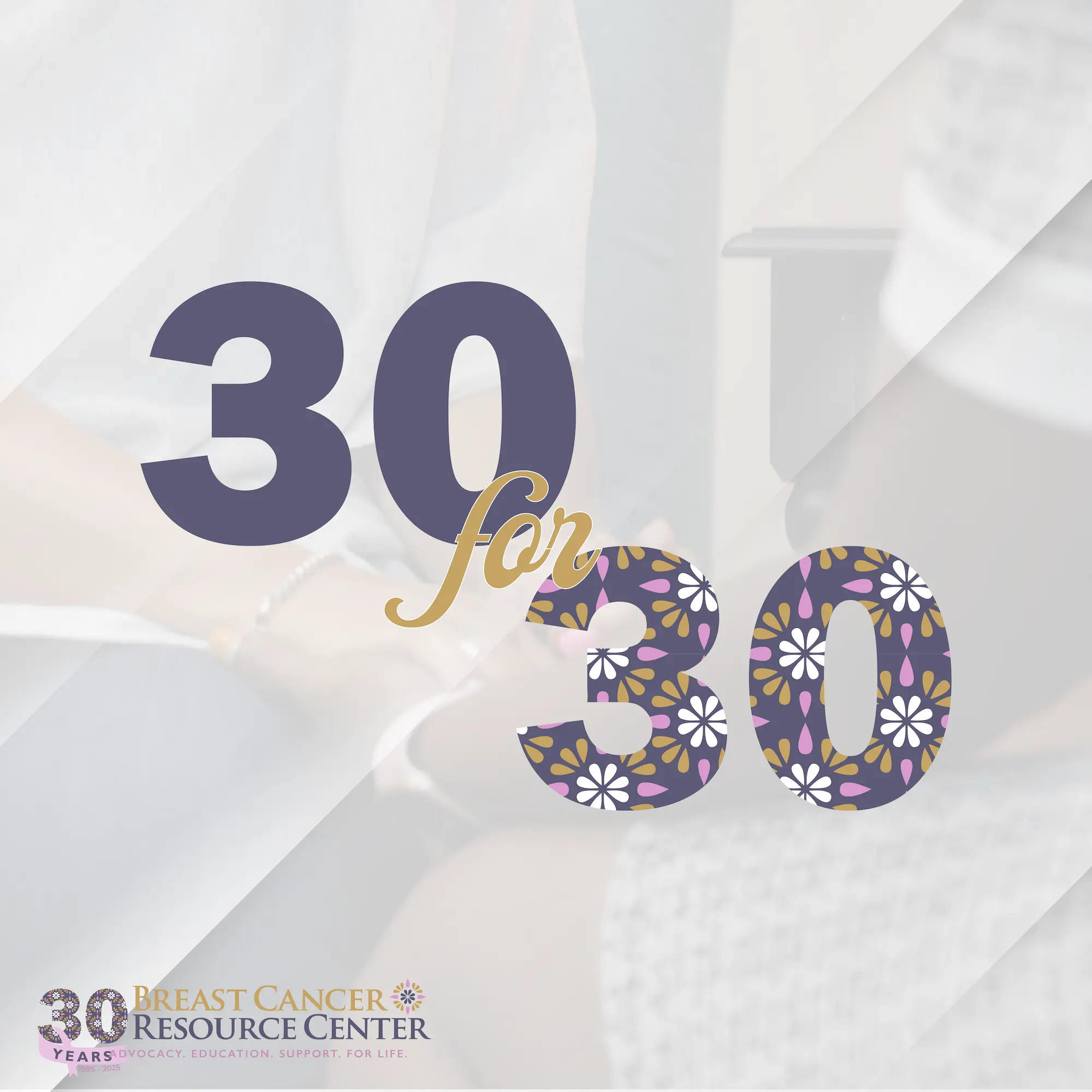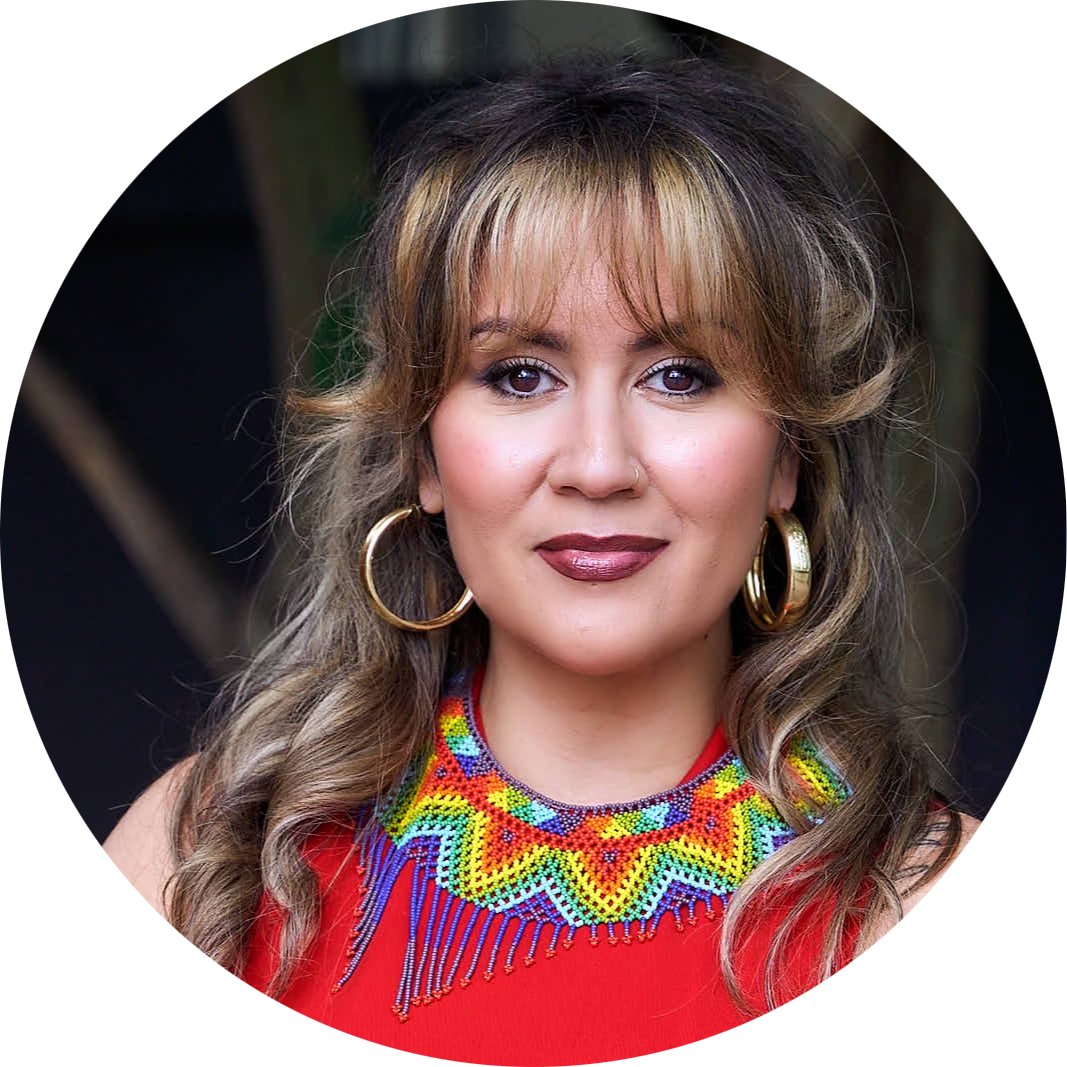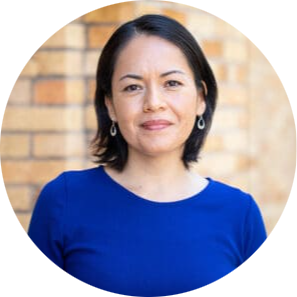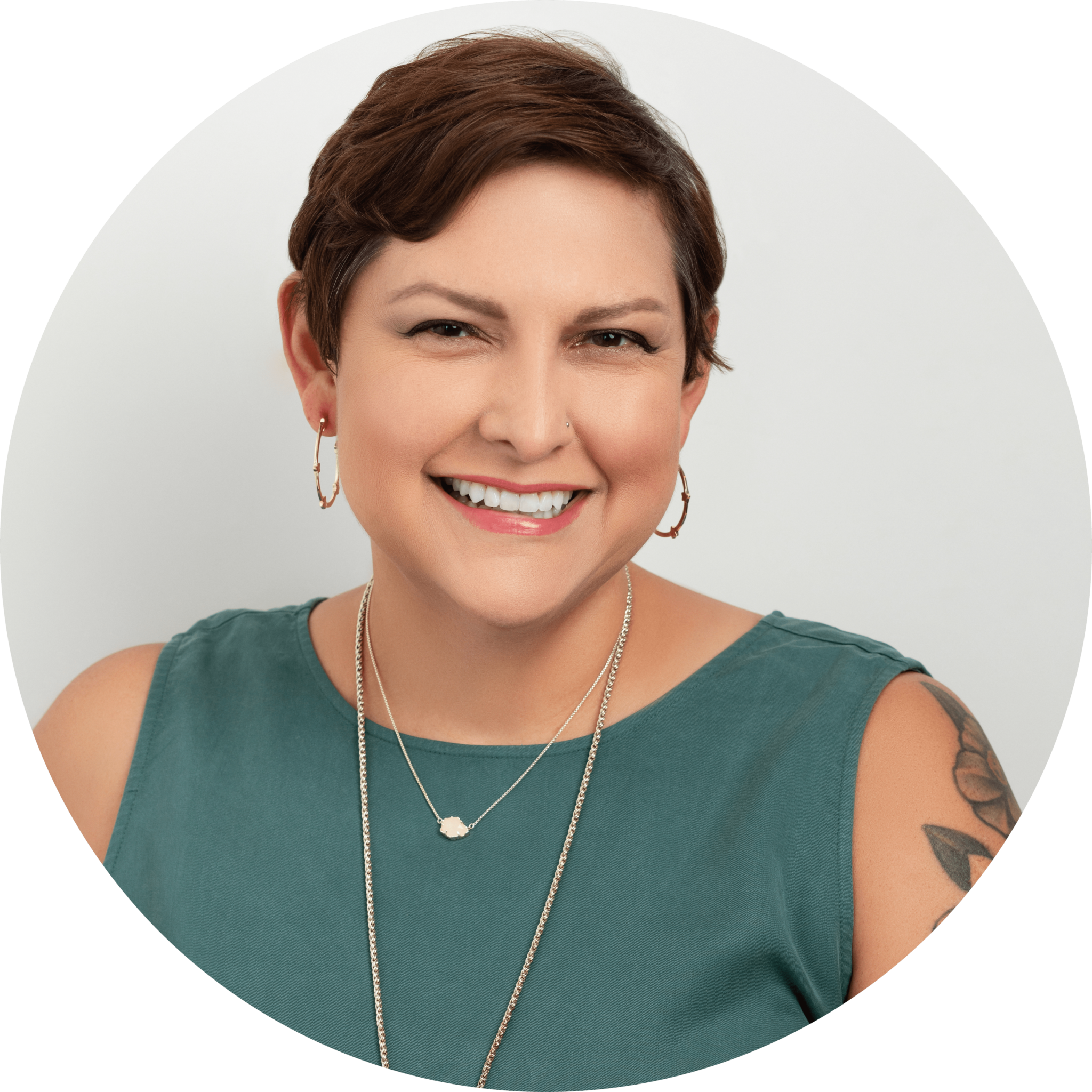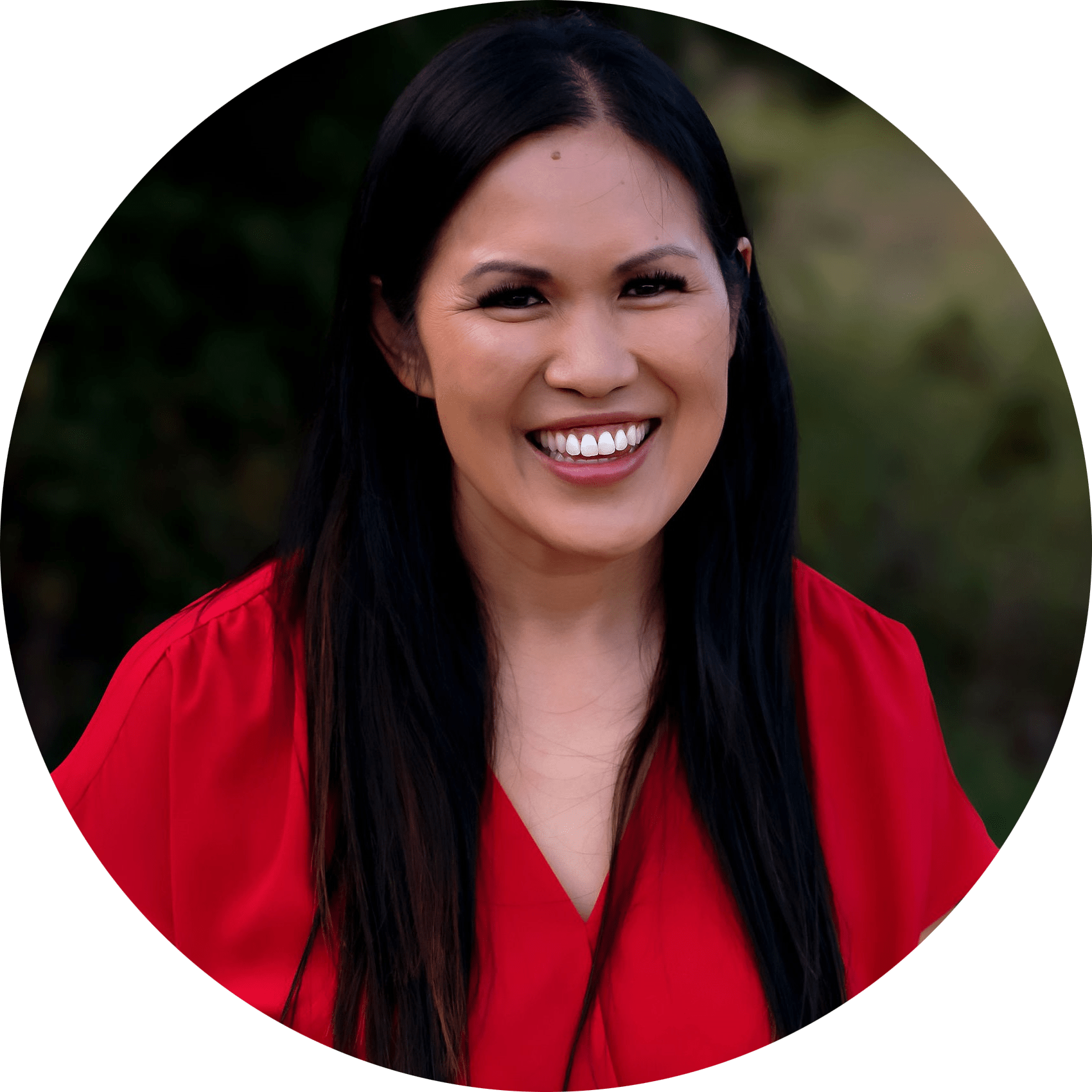When you find out that you have breast cancer, deciding the right breast surgery for you can feel daunting. You’re in the middle of a massive fact-finding mission, with several new doctors to meet, offices to navigate, imaging tests to schedule and get done in a rush. Every day, the story changes. Every day, the options seem to grow and shrink at the same time. And all the while, family and friends come out of the woodwork to offer (strong and pushy) opinions on your surgical care, sometimes with minimal knowledge or understanding of your unique cancer diagnosis.
It’s a mess logistically. It’s a crisis emotionally. And you’re being asked to make big decisions. How in the heck do you navigate this? Below is the conversation that I have with every new breast cancer patient that I meet, to help guide them through the process. So let’s dive in!
First things first, your breast surgeon will perform a physical exam. They should review every single mammogram, ultrasound and MRI image with their own eyes before they even meet you. Ask them if the images they looked at matched the radiology reports, and if they had any concerns about missed findings. Ideally, during the examination, your breast surgeon will do their own ultrasound examination if your cancer was ultrasound visible. Do they think you need any additional imaging workup or biopsy, or do they feel confident that your workup was appropriate?
During examination, your breast surgeon is assessing your tumor location, size, relation to your breast shape, distance from nipple, etc. In the treatment of breast cancer, there are two options: remove the entire breast with a “mastectomy”, or remove the tumor with a “lumpectomy” and keep your breast, with a plan of breast radiation to follow weeks later. This is the important part: assuming that lumpectomy is surgically feasible with a reasonable cosmetic outcome, there is no statistically significant difference between having a lumpectomy with radiation vs a mastectomy. Let me repeat this one: having a mastectomy does not “save” you from breast cancer any more than a lumpectomy with radiation. There is no difference in local recurrence. There is no extra survival advantage. In an early stage breast cancer, your cancer is small; as a result, you are choosing between two equally safe options. In fact, approximately 60% of early stage breast cancer patients choose to undergo lumpectomy! It’s so tempting to think about breast cancer surgery in terms of “getting rid of all the cancer” or “not wanting to go through this experience again”. Mastectomy doesn’t buy you either outcome, but it does buy you a statistically higher risk of surgical complications, especially with reconstruction, simply because these are bigger surgeries.
Next, go back in your mind to one year ago, to when you didn’t know you had breast cancer. You, and your breasts, were out there, living your life. Ask yourself honestly what your relationship to your breasts was back then. This is such a weird question to ask, so really give yourself some time to think about this one. Did you like your breasts? Hate them? Wish they were bigger / smaller / perkier / lifted? What role does breast sensation play in your life? When you hug your family, do you enjoy feeling them against you? When you have sex with your partner, does breast / nipple sensation play an important role in arousal? This is a critical thing to consider, because mastectomy will generally make your chest completely numb.
There are some folks for whom this stuff is super important, and other folks who really couldn’t give two hoots about breast sensation. Every person is different, and their relationship to their breasts are different, and this relationship is different when you are 35 versus when you are 75. This is why you shouldn’t go off of what someone else would do (or has done). It’s your body, and your relationship to your breasts. The reason that this matters is for survivorship – it’s not ok to save you from breast cancer, but have you totally hating your mastectomy or reconstruction outcome because you can’t feel anything (and believe me, some do). It’s also not ok to put yourself through a mastectomy / reconstruction if breast sensation was important to you, only to suffer complications. There’s a strong possibility that you may be rather unhappy if breast sensation was important and you sacrificed it without gaining any cancer benefit. In the end, as much as I love my incredible plastic surgeons, they are not a higher power or Mother Nature, and only those two can make a real breast. Reconstructions can look as real as anything, but it will never act or feel exactly like your original real breast.
Are there good reasons to pick a mastectomy? Absolutely! The good reasons to do mastectomy are desire to avoid mammograms, no personal importance for breast sensation, desire to avoid / inability to do breast radiation, and presence of a documented genetic mutation (and even then, some mutations do not warrant mastectomy). Just as above, it’s not okay to get you through a lumpectomy and radiation, only to have you paralyzed with anxiety every time you go for a mammogram. Mastectomy can also be a wise choice if you have very little breast tissue and a lumpectomy would leave an unacceptable cosmetic defect. This is sometimes the case if you have disease in more than one area of the breast, or if the tumor is close to the nipple and the nipple cannot be preserved safely.
Don’t forget, everything has a flip side. Our focus here is, what kind of survivorship experience would allow you to feel closest to yourself, long term? What would allow you the greatest comfort and reassurance five years from now? For all the patients who choose mastectomy and are happy to avoid future mammograms, there are an equal number who feel disappointed that they won’t have mammograms after mastectomy to screen for recurrence. If going for a mammogram each year is going to make you feel glad to have this tool to help screen for recurrence, this is an argument for keeping your breast. If going for a mammogram each year is going to be a source of crippling anxiety and fear, it’s okay to say you’d rather not keep your breast. In other words, the same information can be interpreted two different ways, and there isn’t a right or wrong here – only what’s right or wrong for you! Following breast conservation, even if a recurrence does happen locally, you still have the option of mastectomy and reconstruction down the road.
Which brings us to the less talked about options for reconstruction. Most are aware that implant based reconstruction is available following mastectomy. However, the gold standard is actually a DIEP flap, which utilizes your abdominal fat tissue and its associated blood supply (the deep inferior epigastric perforator artery). This allows for a reconstruction that comes from your own living tissue and is warm to the touch. A third option is an aesthetic flat closure, which can be a good choice if you prefer your torso to have a flatter shape that is unencumbered a breast shape/form. If you choose to have a lumpectomy, you are still entitled to plastic reconstruction in whatever form you need. For example, if your breasts are very large or droopy and you have long struggled with this issue, a lumpectomy can be combined with a breast reduction and lift, and this is covered by insurance as reconstruction! Some breast surgeons also place a small slow-dissolving oncoplastic device (called a BioZorb) if they feel that this can help minimize the lumpectomy defect, with the added benefit of marking the tumor site for radiation targeting as well as future mammogram screening.
There are two important additional considerations: genetic panel testing and consultation with medical oncology. The American Society of Breast Surgeons recommends that genetic panel testing be offered to every person with a breast cancer diagnosis, irrespective of age or family history. This is more than just “BRCA” testing, which historically only tested for the BRCA1 and BRCA2 mutations. Nowadays, genetic panel testing can examine between 14 and 84 genes for mutations known to increase risk of cancer, and it’s helpful to have this testing done before definitive breast surgery is performed. It is also wise to meet with your medical oncologist before surgery, especially if your tumor is greater than 2 cm in size, has spread to a lymph node, is triple negative or HER2 positive. The reason is that many times, we would actually consider chemotherapy before surgery. There are many reasons to consider this approach, and many benefits, but an important one from a surgical standpoint is that it can help make a larger tumor physically smaller, such that a lumpectomy now becomes possible. One thing to note with tumors that need chemotherapy: patients often make the mistake of thinking that a mastectomy will “buy” them out of having to do chemo. And unfortunately, it doesn’t.
What’s the bottom line? A breast cancer diagnosis is an “all hands on deck” situation. Ideally, the decision on how to proceed should include conversations with your breast surgeon and medical oncologist, and radiation oncology as well as plastic surgery as appropriate. I often tell patients that a breast cancer diagnosis is an emotional emergency, but not a surgical one – we have the luxury of a little bit of time to do our homework, meet everyone, get genetic testing or imaging (if needed), the works. We want to do this right the first time. And we are here to support you in any way that we can.
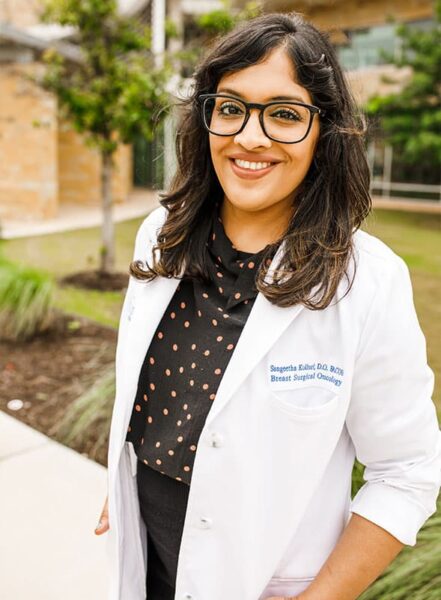
Written By: Dr. Sangeetha Kolluri
Dr. Sangeetha Kolluri is a board-certified, fellowship-trained breast surgeon. She treats the complete spectrum of breast conditions from benign to malignant diseases at Wildflower Breast Center at Austin and Kyle, TX.
After receiving her Medical Doctorate at the New York Institute of Technology College of Osteopathic Medicine, Dr. Kolluri completed her Residency in General Surgery in Flushing Hospital Medical Center and completed Fellowship in Breast Surgical Oncology at Texas Tech University Health Sciences Center. She is certified by the American Society of Breast Surgeons for the performance of breast ultrasound.
To read more about Dr. Kolluri, view her full bio here.
If you or someone you know is facing breast cancer and could use our support, please visit our website or call our helpline at 512-524-2560.
Consider making a donation to BCRC and give the gift that makes a real difference for the women in Central Texas facing breast cancer right NOW. Visit bcrc.org to learn more about how we can help, or click here if you wish to give back today.
